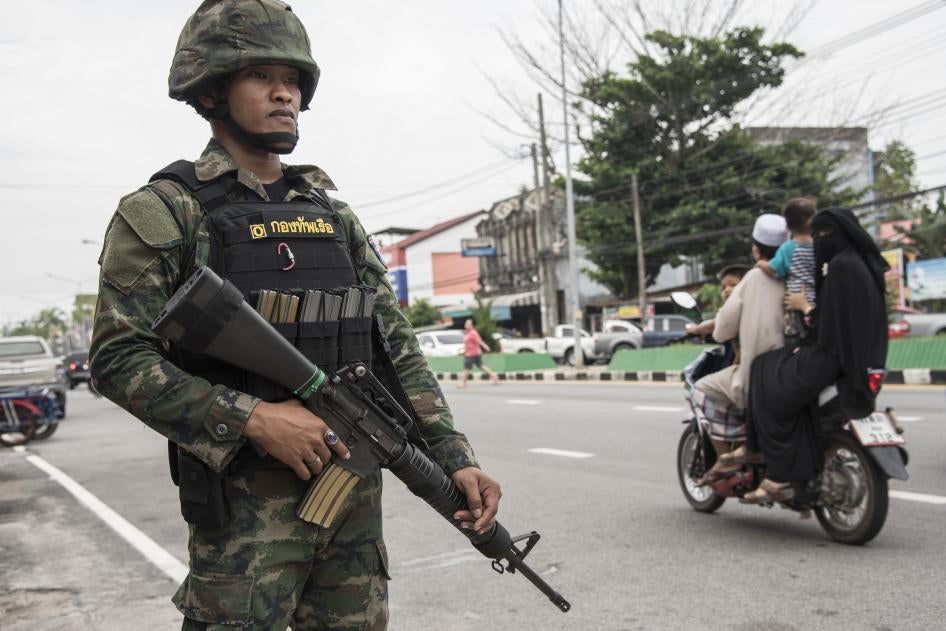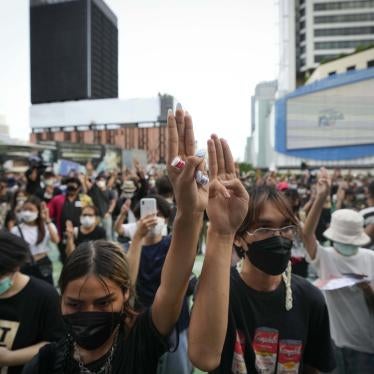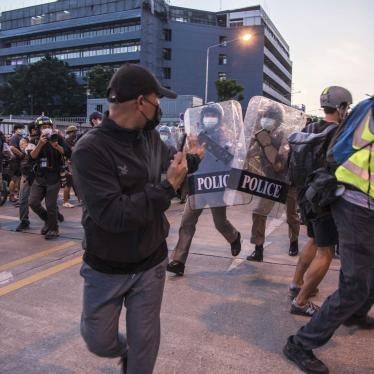The Thai government returned to the negotiating table last week with the separatist group Barisan Revolusi Nasional (BRN) to end the armed conflict in the southern border provinces. Since 2004 the conflict has claimed more than 7,000 lives, mostly civilians, in the provinces of Pattani, Yala, Narathiwat, and Songkhla.
Both sides said the Malaysia-brokered meeting was a steppingstone for future talks to reduce violence, initiate public consultations, and determine a political solution. But it may take months or years for this dialogue to yield tangible results and meanwhile core issues are being left unaddressed.
The Thai authorities continue to ignore the root causes of grievances among ethnic Malay Muslims, specifically a lack of accountability for state security forces’ human rights and laws-of-war violations in the restive region. Over the past 18 years, reports about state-sponsored abuses – such as extrajudicial killings, enforced disappearances, arbitrary detentions, and torture – are a daily reality in the southern provinces. To date, not a single member of the security forces has faced criminal prosecution for such crimes.
Meanwhile, BRN representatives remain silent about serious abuses and laws-of-war violations committed by insurgents causing numerous civilian deaths and injuries to both ethnic Thai Buddhists and Malay Muslims. Insurgents have made cruel and legally unjustifiable claims that attacks on civilians are permitted because they are part of the Thai state or because the BRN’s interpretation of Islam permits such attacks.
This lack of accountability on both sides is fertile soil for extremism and ethnic hostility to grow.
Many governments and international organizations have monitored the conflict and supported peace efforts in Thailand’s southern border provinces. They should urge the Thai government and BRN to recognize that a durable peace depends on an environment in which human rights are fully respected, justice is upheld, accountability assured, and everyone can live without fear.
People of all ethnicities in Thailand’s southern border provinces await human rights protections to which they are all entitled.










